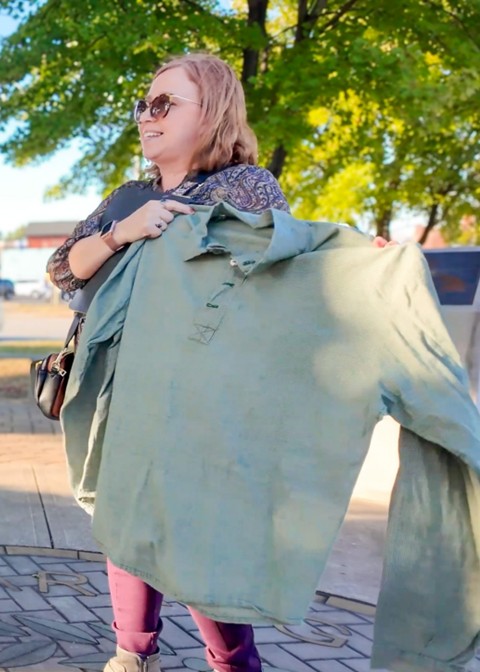Shelby Meredith, Jeffersonville High School junior, uses her cell phone at least five hours a day. She checks Facebook, scrolls through Instagram, and sends text messages – even while spending time with her boyfriend Jacob Seiner, a Jeffersonville High School senior.
Both of these students belong to Generation M2, according to the Kaiser Family Foundation. Children and teenagers in Generation M2, ages 8 to 18, consume more media than any generation prior. The five hours Meredith spends connected to her cell phone do not compare to the 7 1/2 hours a day that others Generation M2 consume media, according to the Kaiser Family Foundation.
Seiner denies being addicted to his phone or spending hours connected. However, he said he sends almost 2,000 texts a month on average.
“When it’s warm I work on my car,” Seiner said. “But it’s cold and I don’t have much to do, so I text a lot or look at pictures of cars on Instagram.”
Seiner said Meredith never puts her phone down.
“I can’t watch a movie with her,” Seiner said. “When I look over at her she is staring at her phone. I can’t even talk to her sometimes.”
Meredith said she is not ashamed about her dependency.
“I feel like if I don’t have my phone then I can’t talk to anybody,” Meredith said. “I get worried. If I don’t refresh I’m going to miss something.”
Social media is what draws her. Seiner said there are times he looks at Meredith’s phone and she is scrolling through people’s profiles that she has never met.
“I follow friends and people I know, but I also look through random people’s profiles,” Meredith said. “That’s what Instagram is for.”
High school students are not the only people that spend hours on their phones. Melissa Blocker, psychology sophomore, said she spends six to eight hours a day on her phone.
“I like knowing what’s going on. I find out everything on those sites [Facebook and Instagram],” Blocker said.
She said she feels lost and disconnected from the world when she is away from her phone for an extended period of time.
“It’s a routine thing I do every day,” Blocker said. “I check my phone and play games on it throughout the day, so I’m on my phone periodically.”
Though people can be seen staring at their phones while walking down the hallways, not everybody is attached to their phones. Parking Bowling, special education sophomore, said he is not attached at all.
“If I lost my phone for a couple of days I’d be fine,” Bowling said.
Bowling said the phone is good for checking schoolwork and using the GPS, but he also said if it were not for his smartphone he would not use Facebook.
“If I get bored I click on my app and scroll through my news feed,” Bowling said. “But I don’t spend more than two hours a day on my phone, counting texts and phone calls.”
Audrey Deterding, communication studies lecturer at North Arizona University, said extensive social media use is not always positive.
“It’s a problem when people use media to substitute for personal interaction, which research shows people do,” Deterding said.
Deterding said there is still a connection to others online, via Facebook statuses and responses to other’s posts. Social media also aids in reconnecting with people we would not otherwise have access to, Deterding said.
While Deterding said she can see a positive side to social media, she also sees problems.
“It allows us to create a persona of what or who we want to be or want to pretend to be rather than who we are,” Deterding said. “It can lead to a distortion of reality if my online persona is different than my face-to-face self.”
Face-to-face interaction is a learned skill, Deterding said.
“When kids are spending less time with people in face-to-face interaction their skills are lessened,” Deterding said. “It also affects their ability to pick up on and process nonverbal communication since online is devoid of those nuances.”
Rebecca Carlton, communication studies senior lecturer, said that the skill should be taught and reinforced. She also said that because she does not believe social media will be disappearing any time soon, communicating effectively on social media is a skill that needs to be developed as well.
“We have to be intentional about developing our interpersonal communication skills,” Carlton said. “Communicating in 140-character snippets will not replace our face-to-face communication. So, in my opinion, social media has created an additional area of communication in which we need to be effective.”
Blocker said she thinks social media is good and bad.
“It’s good in relation to getting a hold of people and knowing what’s going on in the world,” Blocker said. “But it’s also very annoying because everyone has lost their sense of verbal face-to-face communication.”
Technology is “taking over the world,” Meredith said. However, she said she does not want to give up her phone.
Media use is at an all-time high for Generation M2. Blocker said she thinks the result will be dependence on the technology. She thinks that in the future, schools will teach only with technology and students will be required to have tablets, she said.
“It will be out of control,” Blocker said.






